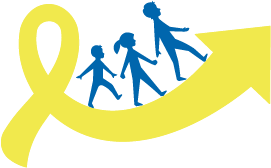Canadian data sources for paediatric oncology
The Initiative to Maximize Progress in Adolescent and Young Adult Cancer Therapy (IMPACT) cohort is housed at ICES and contains detailed diagnostic and treatment data for AYAs aged 15–21 in Ontario.
Prediction and simulation models
POSIM is a web-based, interactive platform that hosts decision analytic models and disease models developed (in R) by scientists and paediatric oncologists at The Hospital for Sick Children (SickKids) in Toronto, Canada.
Some research from the North American Childhood Cancer Survivor Study (CCSS) has resulted in the development of future risk calculators to better understand potential outcomes for survivors.
Methodological resources
Career resources
Dr. Paul Nathan describes the ROCCA research mission and model in the article titled “What can data tell us about the long-term effects of surviving childhood or adolescent cancer?”
This article was produced by Futurum Careers, a free online resource and magazine aimed at encouraging 14-19-year-olds worldwide to pursue careers in science, technology, engineering, maths and medicine (STEM), and social sciences, humanities and the arts for people and the economy (SHAPE).


